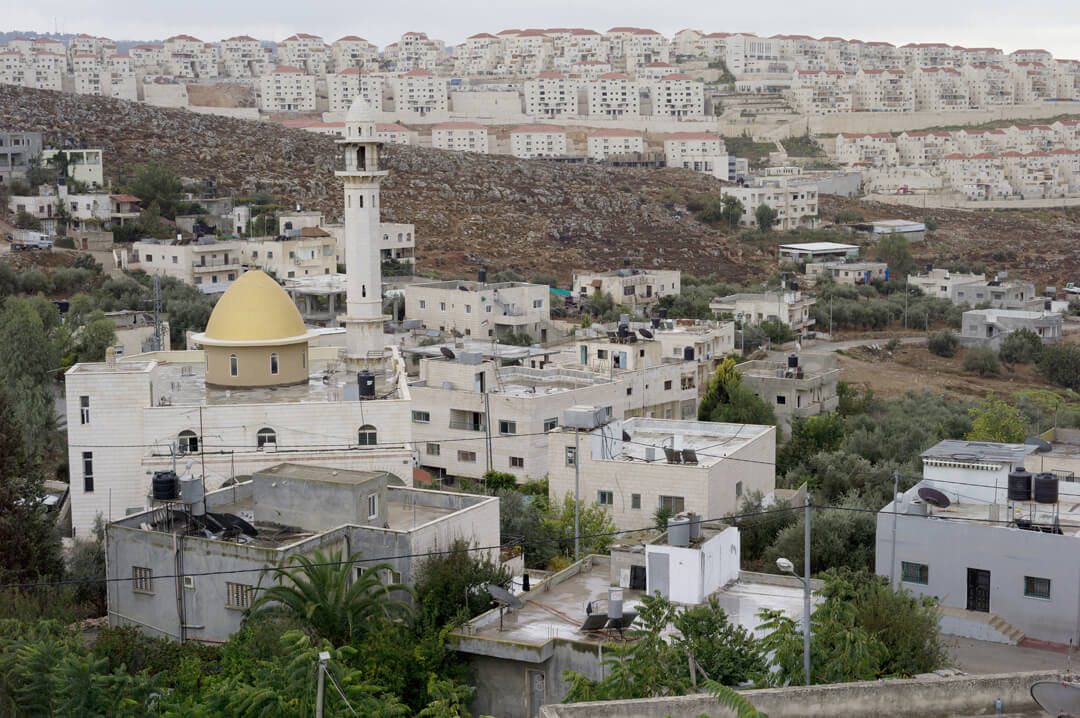Aarab Marwan Barghouti, the son of jailed Palestinian official Marwan Barghouti who is leading a hunger strike of more than 1,500 Palestinians detained in Israeli prisons, gave a boost to prisoner solidarity campaigns by releasing a video of him drinking a bitter mixture of salt and water. The clip closes by asking others to participate in his “salt water challenge” in solidarity with the Palestinian hunger strikers.
After overcoming multiple legal and administrative hurdles, including an Israeli-imposed travel ban, Omar Barghouti, co-founder of the Boycott, Divestment and Sanctions (BDS) movement, appeared on a panel at Columbia University last night entitled “The Road to Freedom: The BDS Movement for Palestinian Rights and the Struggle Against Apartheid.” Barghouti listed BDS’ many accomplishments since its launch in 2005 by Palestinian civil society and his commentary was sharp and at times funny. “BDS cannot claim full responsibility for Israel’s growing academic, cultural and increasingly economic isolation” Barghouti said. “For Israel itself deserves a big share of the credit.”
American Muslims for Palestine writes, “The federal government has dropped the charges against AMP [American Muslims for Palestine] staffers Taher Herzallah and Kareem El-Hosseiny. Stephen Rickard, Deputy Chief of the misdemeanors section in the U.S. Attorney’s office notified the men’s attorney Ann Wilcox on Friday evening.” Herzallah and El-Hosseiny faced charged for protesting during the Senate confirmation hearing of Ambassador to Israel David Friedman. The two were arrested along with four others who were not charged.
Nearly 100 Israelis sign onto an open letter endorsing Palestinian prisoners on hunger strike, “We, a group of conscientious Israeli-Jews, would like to express our deep respect and solidarity with you – the 1,500 or more Palestinians who embarked on a collective open ended hunger strike to demand your basic rights.”
The donor class of the Democratic Party in Massachusetts puts its foot down, and the party moves to quash a lukewarm resolution condemning Israeli settlements. Fears of BDS and an “exodus” of Jewish leaders from the party fueled the response.
Rabbi Lynn Gottlieb interviews advocates for nonviolent peacemaking between Jews and Palestinians in the Holy Land, Israeli Dr. Yoav Litvin and Palestinian Sami Awad. Gottlieb says, “People who resist the systemic violence of Israeli Occupation in Palestine and Israel have a lot to teach us about building nonviolent movements for justice and social change under extremely challenging conditions.”
Yair Svorai traces the history of the settlement movement from its early planner Arthur Ruppin . . . to Donald Trump: “The expansion of Jewish settlement in Palestine has followed a consistent pattern for about 100 years: people replacement – the replacement of Palestinians by Jews. It is crucial to understand the timing of such expansion: whenever the opportunity arises. And, for Israel, Donald J. Trump is a historic opportunity on a grand scale.”
I., a European living in Israel, explains why she decided to keep her kindergarten-aged daughter home from school when Israeli schools are mandated teach about the Holocaust to children as young as three years old: “Because of the decision other people made about when and how it is appropriate for our child to learn about genocide, we chose to keep her at home yesterday and today. We want our child to learn about injustice; moral, critical thinking; and courage. We want her to grow up to be strong, fair, kind and safe. And, we think that learning about blurry dangers in a distant past does not teach her that.”
Sheren Khalel reports on the memorial ceremony that marked Basil al-Araj’s status as a “martyr” in his West Bank hometown of al-Walaja, “Less than two months after his death, the image of Basil al-Araj, clad in a red checkered keffiyeh loosely wrapped around his neck and thick black-rimmed glasses settled over a thoughtful expression has become iconic. Palestinian youth have swapped their profile-photo-selfies for the slain leader’s image across social media circles. The image appears on local artwork, graffiti murals, t-shirts and posters from Haifa to Hebron.”
Steven Salaita writes: “Palestine isn’t the totality, or the crux, of today’s debates about speech and resistance on campus. There’s too much repression preceding Palestine, and now in existence alongside it, for that to be true. But Palestine deeply informs the substance of those debates, and by recovering this sunken reality we can better understand the disputes around free speech and academic freedom that generate so much attention.”









